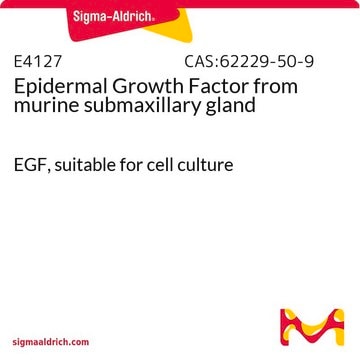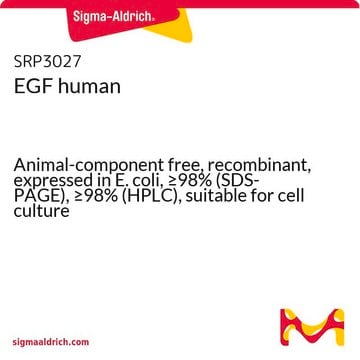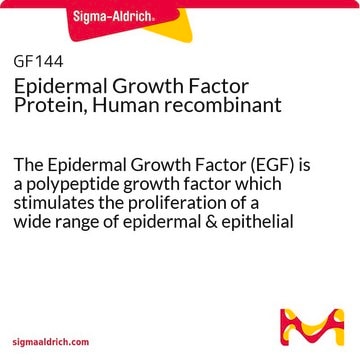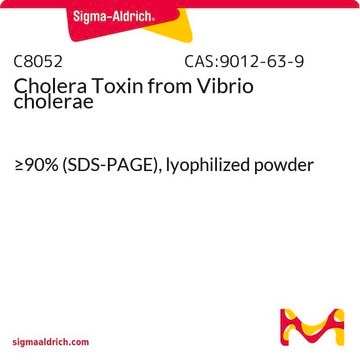GF155
Epidermal Growth Factor Protein, mouse
The Epidermal Growth Factor (EGF) is a polypeptide growth factor, which stimulates the proliferation of a wide range of epidermal & epithelial cells.
Synonyme(s) :
EGF
About This Item
Produits recommandés
product name
Epidermal Growth Factor Protein, Recombinant mouse, The Epidermal Growth Factor (EGF) is a polypeptide growth factor, which stimulates the proliferation of a wide range of epidermal & epithelial cells.
Niveau de qualité
Pureté
>98% (SDS-PAGE)
Activité spécifique
≥6.6 x 106 U/mg
Fabricant/nom de marque
Chemicon®
Impuretés
<0.1 ng/μg Endotoxin (of EGF; 1EU/ug)
Entrée
sample type epithelial cells
sample type mesenchymal stem cell(s)
sample type neural stem cell(s)
Conditions d'expédition
dry ice
Description générale
Application
Liaison
Forme physique
Stockage et stabilité
Remarque sur l'analyse
Informations légales
Clause de non-responsabilité
Code de la classe de stockage
11 - Combustible Solids
Classe de danger pour l'eau (WGK)
WGK 1
Point d'éclair (°F)
Not applicable
Point d'éclair (°C)
Not applicable
Certificats d'analyse (COA)
Recherchez un Certificats d'analyse (COA) en saisissant le numéro de lot du produit. Les numéros de lot figurent sur l'étiquette du produit après les mots "Lot" ou "Batch".
Déjà en possession de ce produit ?
Retrouvez la documentation relative aux produits que vous avez récemment achetés dans la Bibliothèque de documents.
Notre équipe de scientifiques dispose d'une expérience dans tous les secteurs de la recherche, notamment en sciences de la vie, science des matériaux, synthèse chimique, chromatographie, analyse et dans de nombreux autres domaines..
Contacter notre Service technique








